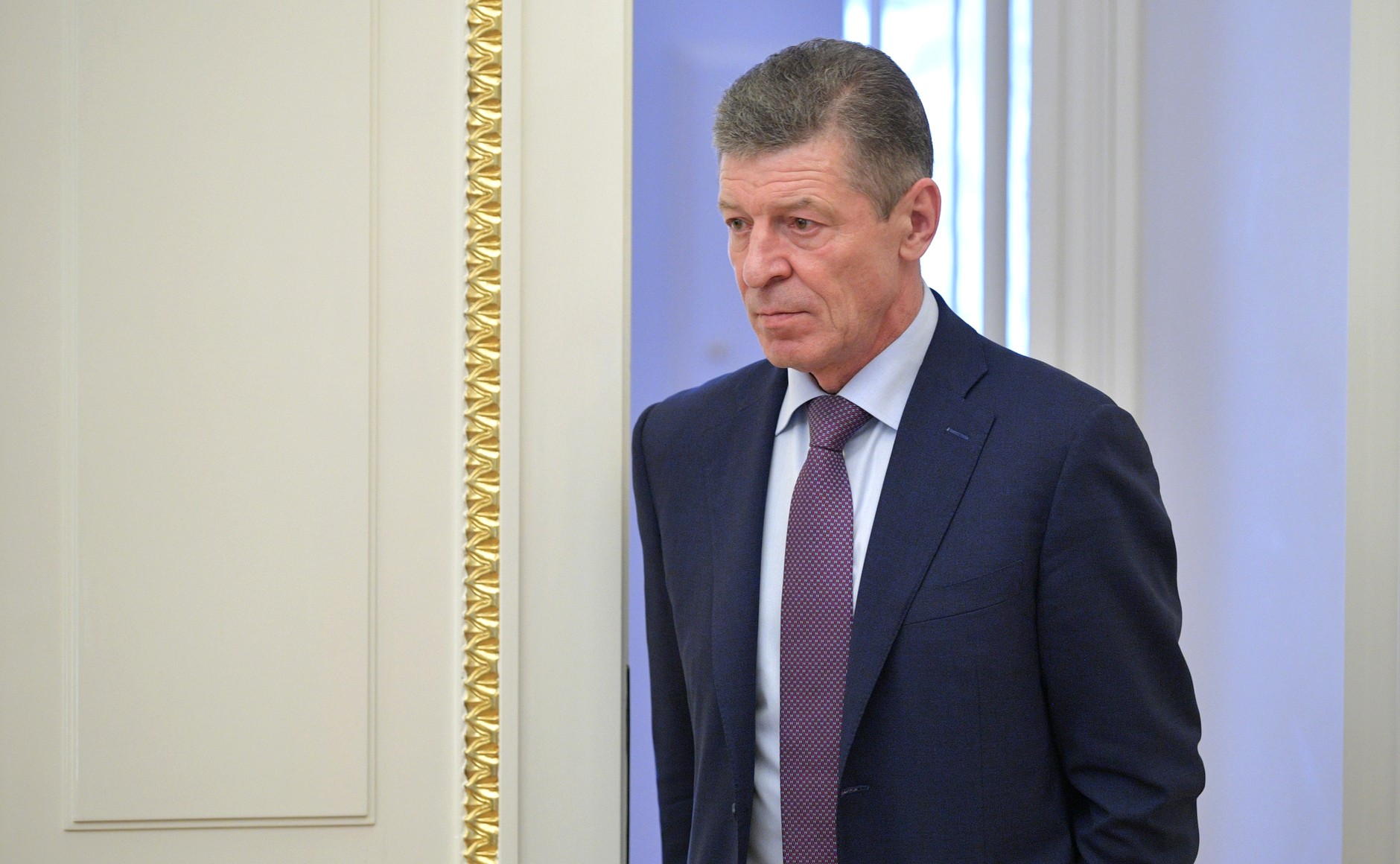Senior Kremlin official has voiced Moscow’s readiness to defend Donbas, the separatist region in eastern Ukraine, in case tensions erupt into a full-fledged conflict.
“It all depends on the scale of the fire,” RIA Novosti quoted Dmitry Kozak, President Vladimir Putin’s deputy chief of staff, as saying.
“If there is, as our president says, Srebrenica, apparently, we will have to step in to defend (them),” Kozak added, referring to the town in Bosnia-Herzegovina where about 8,000 Muslim men and boys were killed by Bosnian Serb forces during Bosnia’s 1992-1995 war.
The deputy head of Russia’s presidential administration made his statement on the same day when President Putin accused Kyiv of provocative action in the country’s eastern region during his phone call with German Chancellor Angela Merkel last Thursday. President Putin said that Ukraine was “inflaming the situation there.”
The conflict in Ukraine’s eastern region has transitioned to a new stage since its eruption in 2014, with renewed shelling and skirmishes between the Ukrainian army and armed separatists. Since the beginning of the year, at least 14 Ukrainian soldiers have been killed and more than 40 injured, with at least 16 fighters killed on the separatist side, according to The Canberra Times.
The surge in clashes between Ukrainian government forces and armed separatist groups in the Donetsk and Lugansk regions only heightened what has been already strained relationships between Russia and Ukraine.
Ukraine has already accused Russia of massing its military troops along the border amid the skirmishes in the country’s eastern region. Moscow, however, maintains that Russian military movements near its border with Ukraine should not be seen as a threat to Ukraine or anyone else and that Russia moved troops within the country as it saw fit. Russia has not revealed troop numbers, but the Ukrainian military said that Russia deployed 28 battalion tactical groups near Ukraine’s eastern border and in Crimea.
Amid rising tensions in eastern Ukraine, Russia has also launched large-scale military drills in all military districts to check the combat readiness of its armed forces.
Earlier this month, President of Ukraine Volodymyr Zelensky urged NATO to support Ukraine and speed up the country’s membership into the alliance, believing it was the only way to end the conflict in the Donetsk and Lugansk regions of Ukraine. President Putin’s spokesperson Dmitry Peskov said this step would hardly help Ukraine “somehow cope with its internal problem.”
Ukraine and Russia, the two post-Soviet countries, have been at odds since the 2014 crisis in Ukraine’s southern and eastern regions. Ukraine accuses Russia of annexing the Crimean region and backing anti-government separatist riots in the country’s eastern regions of Donetsk and Lugansk. The crisis eventually destabilized the Donbas region of Ukraine.
A large number of western countries imposed international sanctions against Russia following the 2014 crisis. The sanctions were imposed by the United States, the European Union (EU) and some other countries and international organizations against individuals, businesses and officials.
While Kyiv and the West have accused Russia of supporting the separatist regimes in Donetsk and Lugansk with weapons and troops, Moscow has repeatedly denied those claims. Despite a ceasefire that halted full-scale war in 2015, the deadly skirmishes never ceased. The ongoing conflict in eastern Ukraine has so far claimed the lives of some 14,000 people and left as many as 40,000 wounded, according to Kyiv’s estimates.
The conflict in Ukraine risks further deterioration of US-Russia relations and greater escalation if Russia expands its presence in Ukraine or into NATO countries, according to the US-based think tank, the Council on Foreign Relations.
“Russia’s actions have raised wider concerns about its intentions elsewhere in Eastern Europe, and a Russian incursion into a NATO country would solicit a response from the United States as a NATO ally,” reads a research published to the organization’s website.







 President Aliyev emphasized the critical role of the North-South Transport Corridor in fostering transport cooperation between Azerbaijan and Russi...
President Aliyev emphasized the critical role of the North-South Transport Corridor in fostering transport cooperation between Azerbaijan and Russi...
 Armenian sappers commenced on Monday mine-clearance operations in the territories adjacent to the Saint Mary Church in village of Voskepar (Armenia...
Armenian sappers commenced on Monday mine-clearance operations in the territories adjacent to the Saint Mary Church in village of Voskepar (Armenia...
 Russian Foreign Minister Sergei Lavrov has reasserted that Moscow has no intentions to stop the fighting in Ukraine, even if peace talks commence.
Russian Foreign Minister Sergei Lavrov has reasserted that Moscow has no intentions to stop the fighting in Ukraine, even if peace talks commence.
 Iran has refuted reports of alleged damage to Shimon Peres Negev Nuclear Research Centre located southeast of Dimona, Israel, during the recent air...
Iran has refuted reports of alleged damage to Shimon Peres Negev Nuclear Research Centre located southeast of Dimona, Israel, during the recent air...
 Iran’s Foreign Minister, Hossein Amir-Abdollahian, has labeled a foiled Israeli drone attack in certain parts of the country as a "failure" for Isr...
Iran’s Foreign Minister, Hossein Amir-Abdollahian, has labeled a foiled Israeli drone attack in certain parts of the country as a "failure" for Isr...



